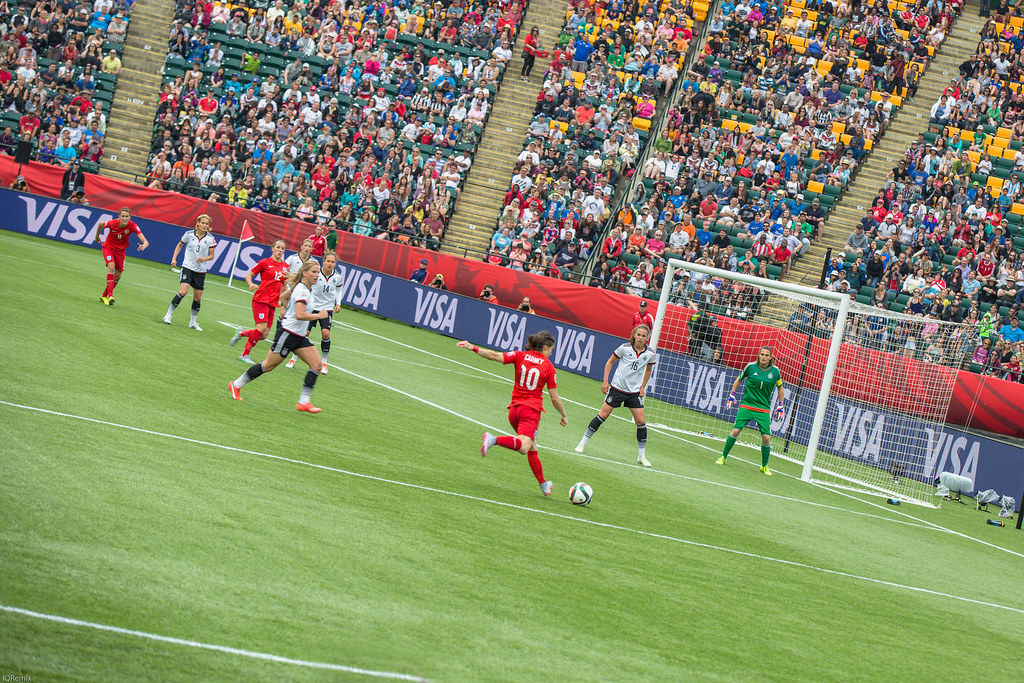

When the 2026 World Cup bid was first unveiled, much attention naturally focused on the United States and Mexico—two nations deeply woven into the history of the World Cup and global football. After all, Mexico has appeared in more tournaments than France, Spain, England, Uruguay, and the Netherlands, to name just a few. The 2026 edition will mark Mexico’s third time hosting—more than any other country in the world. While this decision sparked calls from some nations for greater recognition and fairness, FIFA chose to reward Canadian football by including the Maple Leaf nation among the hosts—making 2026 the first World Cup in history to be co-hosted by three countries. History continues to be written.
With less than a year to go before the tournament officially kicks off, FIFA will rely on all three host nations to deliver a spectacle worthy of the world’s biggest sporting event. The foundation is there: an expanded format, three nations working in unison, and passionate fans across the continent. Canada will host 13 World Cup matches between Vancouver and Toronto (compared to 13 in Mexico and 78 in the USA), including 10 group stage matches, two round-of-32 knockout fixtures, and one round-of-16 match—scheduled to take place in Toronto.
The United States will, understandably, hold the lion’s share of the tournament with 78 matches in 11 host cities—a reflection of its infrastructure and market power. But for Canadian fans, the significance lies not in quantity, but in the moment: their team’s representation on home soil and the historic opportunity to reach the knockout stages. Should Canada advance beyond the group, it would be groundbreaking—after all, they’ve only qualified for two World Cups in their history.
The contrast between Canada and its co-hosts is striking and should not be overlooked.
Mexico made its World Cup debut in 1930—at a time when Canada didn’t even have a professional national team. The world waited decades to see Canada reach the finals, which finally happened in 1986, ironically the same year Mexico hosted the tournament, for the second time.
To make a real impact in 2026, Canada will rely heavily on its star duo: Jonathan David and Alphonso Davies, both playing at the highest level in Europe’s top five leagues. But beyond them, there’s a growing wave of talent pushing through: Porto midfielder and national team captain Stephen Eustaquio, Celtic’s versatile defender Alistair Johnston, OGC Nice center-back Moïse Bombito, and Vancouver Whitecaps’ Jayden Nelson all form part of a promising generation.
Canada’s selection as a host is no accident—FIFA may not explicitly call it a game changer, but we believe this will create a shift in Canada. FIFA outlined the following in its official bid book:
“Canada has proven experience hosting major sporting events and has raised the bar for women’s and youth competitions, including the record-setting FIFA Women’s World Cup Canada 2015™ and the FIFA U-20 Men’s World Cup Canada 2007™.
Known as a welcoming and inclusive nation, as well as a leader in human rights and environmental sustainability, Canada will use the opportunity to host the 2026 FIFA World Cup™ to engage the country from coast to coast through football, while delivering economic and social benefits to its diverse population. The country will prioritize racial and gender equality, social inclusion, and collaborate with all stakeholders on infrastructure improvements.”
Canada’s role in the 2026 FIFA World Cup is not merely about hosting matches—it’s a statement of intent. It is a declaration that the nation, once an outsider in global football conversations, is ready to step into the spotlight and embrace the weight of expectation. This tournament is Canada’s coming-of-age moment on the world stage, a rare opportunity to demonstrate not just its footballing evolution but its identity, values, and unbreakable spirit.

Beyond the packed stadiums and roaring crowds lies a deeper purpose—one rooted in legacy. This moment is not just about hosting matches; it’s about laying down lasting foundations for the men’s game in Canada. Since the early 1980s, when football infrastructure was sparse and public support limited, progress has been slow but steady. While the women’s game surged ahead—culminating in the record-breaking 2015 Women’s World Cup, which drew over 1.3 million spectators—the men’s side has struggled to keep pace. Now, with the world watching, Canada has a chance to close that gap. A chance to elevate its men’s football program to a level of respect, consistency, and global competitiveness it has long aspired to reach.
What once existed in the margins is now moving into the mainstream. Behind the scenes, Canada is quietly but powerfully laying the foundations for a footballing future that will outlast the final whistle.
But the ambition doesn’t stop there. The 2026 World Cup is Canada’s chance to paint a broader vision of inclusion, diversity, gender equality, health, and unity. It’s about energizing youth, galvanizing communities, and giving every Canadian, regardless of background, a reason to believe. Football, here, becomes more than a game—it becomes a national movement.
As North America prepares to unite under one tournament, Canada will stand proudly alongside its co-hosts, the United States and Mexico—three nations bound not only by geography but by shared values and intertwined histories. Together, they offer a bold image of regional harmony, proof that cooperation can build something spectacular.


Yet for all the political and cultural significance, it will ultimately fall on the shoulders of two men to carry a nation’s hopes. Jonathan David and Alphonso Davies—icons in the making, products of a new Canadian footballing generation—will be tasked with inspiring millions, igniting belief, and leading the charge toward uncharted territory. It is their time now, not only to play, but to unify, to elevate, and to dream.
Because some moments are bigger than sport.
And for Canada, 2026 may be remembered not just as the year it co-hosted a World Cup—but as the year it truly arrived.

